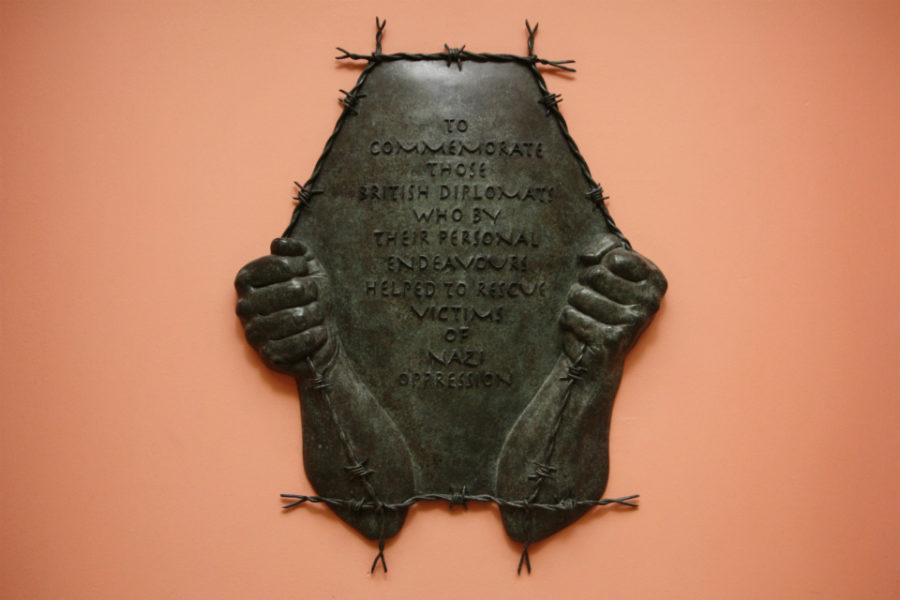“And so we must know these good people who helped Jews during the Holocaust. We must learn from them, and in gratitude and hope, we must remember them.” Elie Wiesel
You may have heard of Nicholas Winton, the stockbroker who organised the Kindertransport and saved 669 Jewish children from Czechoslovakia. Or Frank Foley, the Secret Intelligence Service officer in Berlin, who issued passports that enabled thousands of Jews to escape from Nazi Germany. His efforts were so great that he was honoured by Yad Vashem.
But they were not alone. For example, Sir George Ogilvie-Forbes, Counsellor and Chargé d’Affaires at the British Embassy Berlin, warned many individuals about immediate risks they faced and assisted them in leaving Germany. Like Foley, he even hid people in his home.
British officials in Germany knew that evidence that a British visa had been authorised could secure a man’s release from a concentration camp. So it was important to grant visas quickly and minimise the time between authorisation and release. Robert Smallbones, the Consul-General in Frankfurt, made an agreement with the local Gestapo whereby they would release prisoners when informed that a visa was granted.
The US had a quota system for migrants from each country. Smallbones persuaded the British Home Office to allow Jews to reside in Britain for a year to enable more of them to meet the requirements for entry into the US. This increased the number of people able to escape by tens of thousands. Smallbones, Foley, and Ogilvie-Forbes, were also liberal in assessing visa applications.
John Carvell, Consul-General in Munich issued certificates permitting 300 Jewish men to be released from Dachau to travel to British Mandate Palestine. Their ‘crime’? Marrying non-Jewish German women. Rescues continued after the start of the war in countries still unoccupied by Germany: for example, Thomas Preston in Kaunas, Lithuania, issued 800 legal travel certificates (and at least 400 illegal ones) to enable Jews to travel to Palestine in 1940.
Others without official roles also found ways to help. A notable example is how Trevor Chadwick and Doreen Warriner (both teachers) worked with Nicholas Winton to rescue children from Czechoslovakia. In 1939, up to the declaration of war, they arranged for seven trainloads of children to escape to Britain. Warriner was on the ground in Prague, working for the escape of groups the Nazis would target first, and Chadwick escorted the children between Prague and London. Where they did not have the necessary paperwork, Chadwick enlisted the help of a forger to provide it.
These people had much in common – identifying human need, and acting creatively to meet it. They recognised the necessity for speedy large-scale actions, taking risks, often working 14 to 18-hour days. We must remember them.
Read more
Britain honours its Holocaust heroes: Foreign & Commonwealth Office press release

